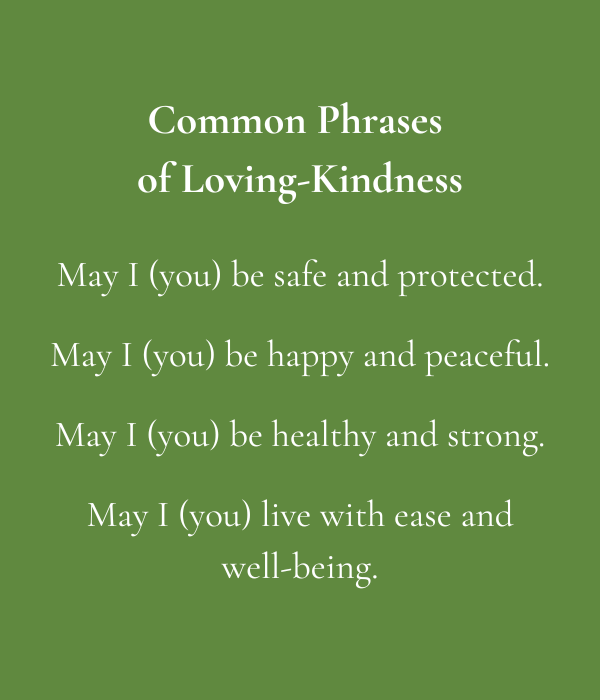
I am becoming water…
I let everything rinse its grief in me
and reflect as much light as I can.
– Mark Nepo –
Mindfulness practitioners will often explore a variety of meditation practices as they endeavor to deepen the cultivation of present-moment awareness. When it comes to developing positive attitudinal qualities, loving-kindness meditation is one of the more popular practices engaged in to nurture the opening of the heart.
What is Loving-Kindness?
As a formal meditation practice, loving-kindness consists of silently directing phrases of goodwill toward ourselves and four types of persons…
- Loved One: this could be a partner, child, family member, friend, or pet
- Respected Benefactor: someone who has been helpful to us in our lives
- Familiar Stranger: someone we don’t know or have neutral feelings towards
- Difficult Person: a person we experience as problematic
The intention of loving-kindness meditation is to progressively expand and nurture the quality of unconditional acceptance and friendliness that already exists within us while holding space for whatever is present in the body, heart, and mind as we practice.

But loving-kindness is so much more than a meditation practice. It is central to the cultivation of the quality of “heartfulness” which often tempers our orientation to the present moment, both on the meditation cushion and off. It also lays the groundwork for the expansion of other heart-centered qualities such as compassion, joy, and equanimity.
The Current of Loving-Kindness
Much like water is a dynamic force within the natural environment, the current of loving-kindness meditation can fundamentally alter the internal landscape of the practitioner.
Just as water travels the path of least resistance, loving-kindness encourages mindfulness practitioners to meet with openness all the varied conditions of the many moments of their life. This motivation to accept things as they are heartens the practitioner to stand in relationship to their experiences without withdrawing from them–offering an ongoing invitation to not abandon themselves, the moment, or others.
It is a somewhat remarkable quality of water that by neither resisting nor forcing, it is still able to transform an environment through its gentle power and persistence. In a similar way, loving-kindness reshapes a practitioner’s internal landscape by gradually disintegrating the obstacles they’ve created over the course of a lifetime that may have separated them from aspects of themselves, and others.
Just as water cleanses what it comes into contact with, loving-kindness helps practitioners to transform habitual loops of reactivity that block clear seeing. In this way, the practice alleviates the internal tensions of aversion and hostility so their energies can be purified and released by their own affectionate attention, rather than staying unresolved and stagnating within the body, heart, and mind.
Drinking from the Well
Just as water awakens the inherent potential within a seed, the practice of loving-kindness meditation awakens the inherent goodness that already resides within each mindfulness practitioner.
The healing waters of loving-kindness develop a practitioner’s capacity to be in the present moment with greater openness and acceptance. Making ripples throughout the landscape of the body, heart, and mind, loving-kindness encourages practitioners to stand near all things with kindness and care. By reminding practitioners of the common threads that unite them with everyone else, it gently dismantles internal obstacles that create a sense of separation from their fellow human beings. It is the medicine of love that ultimately purifies the woundedness of conditioning so the human heart can return to a healthy and balanced state.
The practice of loving-kindness meditation is a limitless reservoir of transformative power, capable of fostering connection, healing wounds, and creating a more loving, compassionate world for us all.
Want to explore a loving-kindness meditation? Take a listen to this introductory loving-kindness meditation practice.
If you’d like to learn more about the practices and principles of mindfulness, check out our upcoming Mindfulness-Based Stress Reduction (MBSR) courses for opportunities to learn and grow.
Already have an existing practice? Consider joining us for ongoing practice opportunities.

 Coming Home to Yourself
Coming Home to Yourself